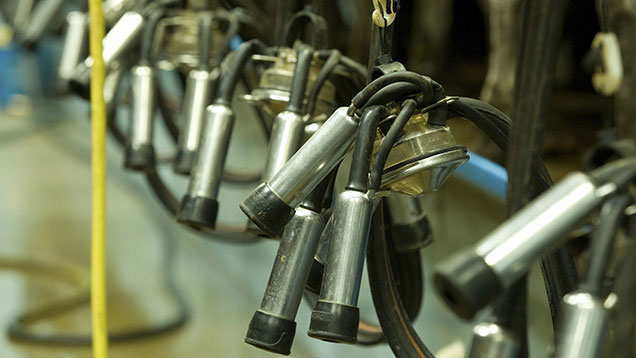Dairy farmers offered just 7p/litre for milk
 ©Image Broker/Rex Shutterstock
©Image Broker/Rex Shutterstock Almost 100 Scottish farmers could be paid as little as 7p/litre for some of their milk as the dairy crisis continues to bite.
Graham’s Family Dairy has halved the price paid for B-rate milk, which is any production above a pre-agreed amount.
Since the autumn the B-rate rate has followed a key market indicator, the Actual Milk Price Equivalent (AMPE).
See also: Scottish dairy reveals new contract to farmers
But Graham’s has told farmers it can now only pay 50% of AMPE and it has also dropped its main A milk price to 23.75p/litre.
Several milk buyers have now brought in similar A and B deals to get farmers to cut production and ease the milk flood currently depressing prices.
Overproduction
Graham’s broke the news to producers in a letter last week, calling the overproduction unsustainable.
“The situation is critical and production must match the requirements of the dairy or all of our businesses will suffer,” the note said.
NFU Scotland is seeking meetings with Graham’s in the next fortnight to discuss the impact of the price cut on farmers.
“The situation is critical and production must match the requirements of the dairy or all of our businesses will suffer.”
Graham’s Family Dairy
Milk committee chairman Graeme Kilpatrick said producers were angry with the short notice.
He said many farmers had invested greatly in the past four or five years but would not be seriously considering their options.
“For such a major change a meeting with the producers should have been called to discuss the situation before any announcement was made,” Mr Kilpatrick said.
“We believe that milk buyers have a duty to alert producers in a reasonable fashion so that they can adjust their production and avoid the damaging impact sudden price changes can have.”
In response to the NFUS statement, Graham’s managing director Robert Graham said the oversupply of milk meant he had no choice but to review the situation.
“As prices have fallen many other producers have just increased production, which is like putting petrol on top of a fire,” he said.
Mr Graham said the only other option was to give notice to producers like some other processors had done – which he did not want to do.
